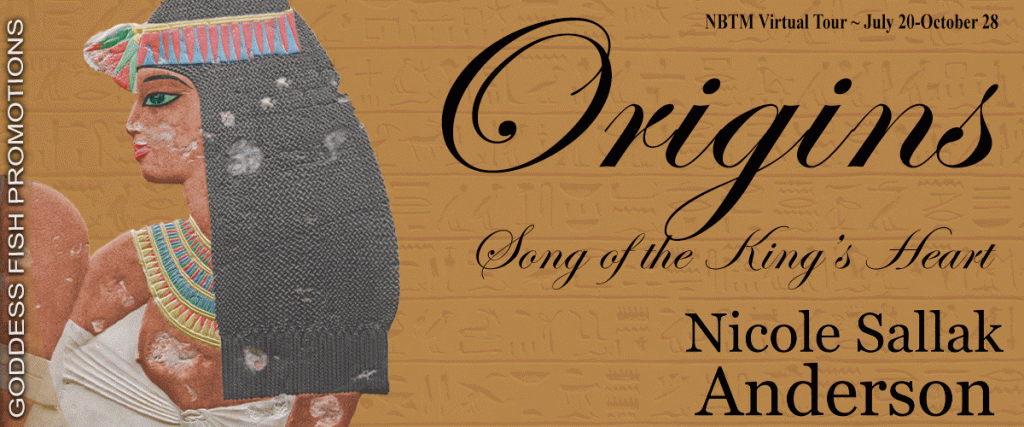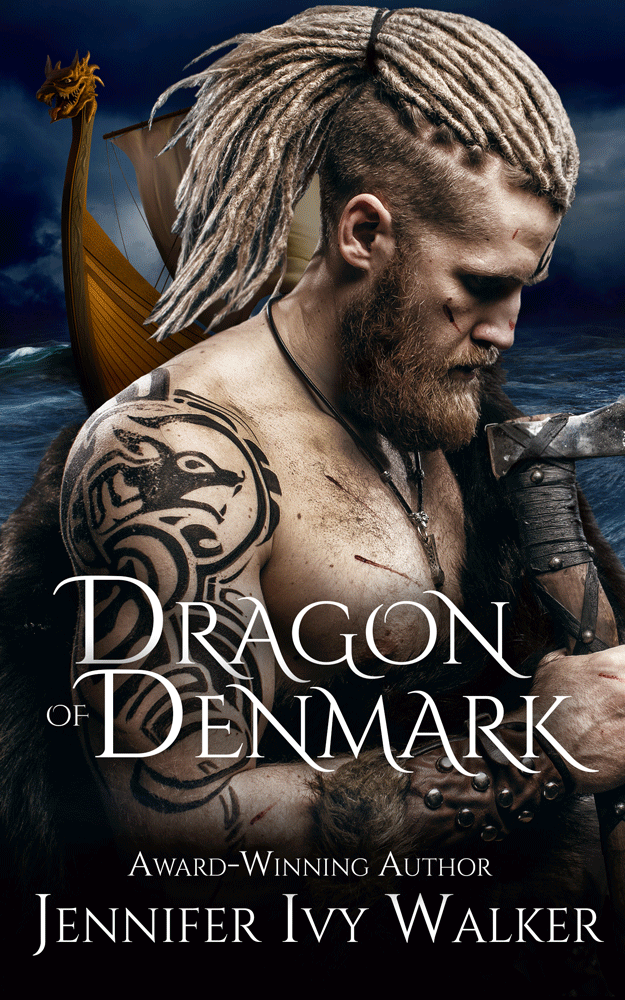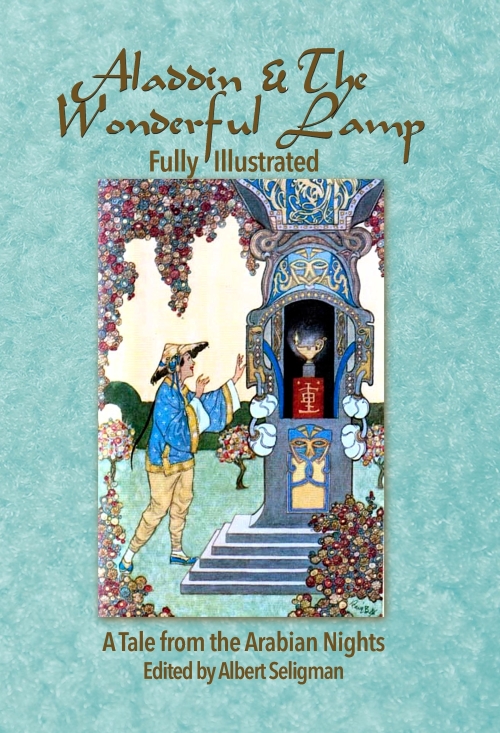This post is part of a virtual book tour organized by Goddess Fish Promotions. A randomly drawn winner via rafflecopter during the tour will receive a $50 Amazon/BN GC. Click on the tour banner to see the other stops on the tour.
The Song of the King’s Heart trilogy is about twin flames—a pair of lovers that were one in spirit but two in body; one male and one female. It’s fair then, that I learned from both Ankhmakis and his spiritual companion, Natasa. When it comes to their love, a few readers and reviewers have misunderstood her role as his spiritual companion as demeaning, akin to a concubine, and for those with a very modern, western mindset, I can understand that. I challenge readers with the idea that sex can be sacred, a sacrament within temple life. Sex magic, or Anit-Shadya as is named in the novels, is a meditative path, akin to Tantric practices. Practitioners in both claim that by paying attention to your energy, your life force, while making love, you can transform your soul and your body. It is a practice that takes discipline, training, and unconditional love.
This then, is what grants Natasa and Ankhmakis their power, and through their love they are able to face the challenges of their world. Natasa’s understanding of the All-One and unity of life, steeped in her religion and faith, is one that changed me. After authoring these novels, I’ve come to see all of life as alive and all beings, whether tree, bird, flower, or mouse, as part of the same web of life as humanity. Natasa transcends to the highest mysteries before falling into great darkness, only to find highest self in the thick of it all. On the other hand, Ankhmakis has taught me about the way of the warrior, the focus needed to fight a battle, both on the field and within his court. Politics is a tricky thing and being worthy of both the army’s and priest’s loyalties is something I don’t think I could ever accomplish. But this is what a ruler’s life is about—a constant dance between one moving body and the next. His love for Natasa is the only thing he has chosen in his life, everything else is duty. Through him, I now see how a balance between love and duty is needed. This is a delicate quest, how does one make sure the activities of life don’t take over to the point that we lose the ones we love?
Learning from my characters is one of my favorite parts of writing. Before I start a new novel, I have an idea of the plot and who is in it, but soon the story takes over and suddenly I’m sucked into a world where my characters are in control, showing me the way with each word I write. Even during the editing phase, they change me and teach me to go beyond myself, to something that only my imagination can soothe. In the end, Natasa and Ankhmakis have taught me that while life can be brutal, love is what lasts for eternity.
Driven apart by hatred, greed, and tragedy, the golden pair Prince Ankhmakis and the Priestess Natasa are now forced to face the darkness of their fates alone.
After a brutal betrayal from within Ankhmakis’s own family, the distraught prince seizes the throne and is crowned Pharaoh Ankhwehenfer, while Natasa is forced to flee across the sea to a new land, with a new magic. Broken and truly alone for the first time since their bonding, their grief threatens to swallow them whole.
A stalemate is proposed, and as Egypt becomes two nations as in the days of old, a prosperous peace falls over the south. The prophecy has been shattered by the Golden Child’s death, yet the royals and their subjects find a way to survive and create an Upper Egypt greater than Ptolemy’s northern rule. Alliances with Nubia and Kush bring the promise of hope on the horizon. The next generation comes of age, and the old one passes on their knowledge so that the sins of the past won’t be repeated in their future.
But evil lurks still. There are those both within the Pharaoh’s court and without that would do anything to see the king fall. Ankhwenefer must confront the pain of the past in order to preserve the future for his sons, or his civilization will end.
Enjoy an Excerpt
The crowd cheered. Their screams were like the howls of furious wildcats. Their nationalism was at its peak, and all he needed to do was stoke it to earn their fealty. He turned to the high priest, who held the crown over his head. The white columns of the temple soared above them, and Ankhwenefer gazed at the hieroglyph-covered walls. In spite of the war, the temple was in pristine condition. All around him were golden statues of gods and goddesses. Animals and other brightly painted forms graced the walls. His flag bearing the phoenix flew high in the wind. Everyone in the room dropped to their knees as their king approached Setep.
“By the power invested in me,” the priest called out, “on this day, the fourth month of Perit, the eleventh day, in the third year of your holy reign, I re-crown you Lord and Pharaoh Ankhwenefer, the Good Being of Isis, Golden Eagle King, protector of our lands and Horus himself. May Amon-Re protect you and our people as we rebuild our nation. Egypt shall reign in glory until the end of time.”
Setep placed the heavy crown on Ankhwenefer’s head. A second priest handed him the hook and flail. He gripped them tightly as he crossed his chest with his arms and, turning to the crowd once more, gazed down upon them.
“My people,” he called, “I pledge myself to you.”
The sun poured in from the windows and shone upon Pharaoh’s face, and the people rose from the floor and clapped. To those in the room, their new king looked like the statues of Horus himself. Ankhwenefer was master of his domain—young, strong, intelligent, and wise. He’d fought hard for many years and won. The priestesses sang as he walked past and out to the courtyard where the commoners flooded the area, crying and tossing palm branches and lotus flowers at his feet. His entourage followed behind him, leading a procession of dancing, music, and singing, toward the palace where a feast awaited them. Tomorrow, the next phase of his reign would begin—creating peace with the Lower Kingdom, rebuilding the cities destroyed by the war, and most importantly, establishing a court in Thebes, with his sons, and Natasa, at his side.
About the Author  Nicole Sallak Anderson is Computer Science graduate from Purdue University, and former CTO for a small Silicon Valley startup, turned novelist, speaker, and blogger, focusing on the intersection of technology and consciousness. Her essays range from AI and Zen to direct democracy to the loneliness of modern parenting (https://medium.com/@NSallakAnderson/pretty-birds-in-pretty-cages-could-the-nuclear-family-be-the-reason-were-all-miserable-46126d573263) — featured as a top twenty story on Medium. In addition, her work on Universal Basic Income has been included on 2020 presidential candidate, Andrew Yang’s, website.
Nicole Sallak Anderson is Computer Science graduate from Purdue University, and former CTO for a small Silicon Valley startup, turned novelist, speaker, and blogger, focusing on the intersection of technology and consciousness. Her essays range from AI and Zen to direct democracy to the loneliness of modern parenting (https://medium.com/@NSallakAnderson/pretty-birds-in-pretty-cages-could-the-nuclear-family-be-the-reason-were-all-miserable-46126d573263) — featured as a top twenty story on Medium. In addition, her work on Universal Basic Income has been included on 2020 presidential candidate, Andrew Yang’s, website.
Her latest project, The Song of the King’s Heart Trilogy, is a series about the last native Pharaoh of Ancient Egypt and his quest to take back his ancestral kingdom from the Ptolemaic Empire. All three installments, Origins, Blood and Chaos, and Civilization’s End, are available. Feel free to contact her, she almost always answers to any query or comment!
The book is on sale for $0.99 at Amazon.
See the series at Amazon.











Thanks for hosting!
Sounds great, thank you.
I really enjoyed both the excerpt and the author post!
Thank you for sharing my work and interviewing about two of my favorite people…Natasa and Ankhmakis!
Looks like an interesting book.